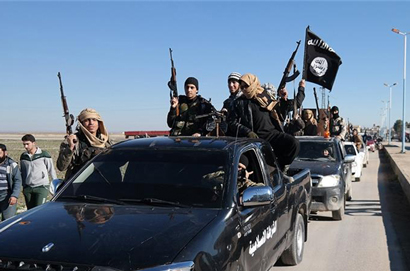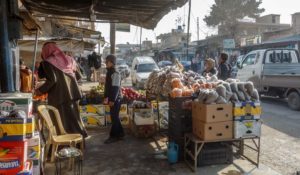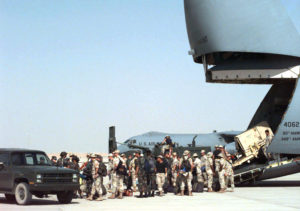
By: Agencies
Source: MWC News
The Islamic State of Iraq and the Levant (ISIL) group has seized territory from both Syrian government forces and rival rebels over the weekend, further expanding the area it has proclaimed straddling Iraq and Syria.
The Syrian Observatory for Human Rights, the Britain-based monitoring group with sources inside the country, said that following gains in both Homs province in the centre of the country and Aleppo province in the north, ISIL now controlled half of the country’s land area.
Geographer and analyst Fabrice Balanche said that across Iraq and Syria, the group now controlled nearly 300,000 square kilometres, an area in the size of Italy, according to the AFP news agency.
In Aleppo province – on Syria’s border with Turkey – ISIL has expanded its control at the expense of rival rebel groups, the group said.
ISIL captured the village of Suran on Sunday, taking them to within 10 kilometres of the border, the Observatory said.
Three days of heavy fighting left 30 ISIL fighters and 45 rival rebels dead, the watchdog added.
On Monday, the group advanced towards the town of Marea, which lies on a key supply route from Turkey for its rebel opponents.
ISIL previously targeted Marea in April, detonating two car bombs and killing 15 rebel fighters, but it was unable to take the town.
Strategic crossroad captured
In central Syria, ISIL ousted government forces on Saturday from a strategic crossroads in the south of the ancient oasis city of Palmyra.
The checkpoint and nearby village of Basireh lead in south to Damascus, in west to Homs, and in east to ISIL-controlled areas of Iraq.
“The road is now open [for ISIL] from Palmyra to Anbar province in Iraq, without any obstacles,” said local activist Mohammed Hassan al-Homsi.
ISIL overran Palmyra on May 21 after a bloody advance across the desert from their stronghold in the Euphrates valley to the east.
In northeastern Syria, ISIL has advanced to within two kilometres of the provincial capital of Hasakeh, the Observatory said.
Syrian government forces have proved increasingly unwilling to fight ISIL in areas that are regarded as marginal, sources told AFP.
For the regime, “the territories that are vital to protect… are Damascus, Homs, Hama, and the coast,” a security source said.
Observatory director Rami Abdel Rahman said the government was suffering from a severe shortage of military personnel both because of heavy battlefield losses and because of difficulties recruiting replacements.
“The armed forces and pro-government militia are unwilling to fight in areas where the local population isn’t also fighting,” he told AFP.






